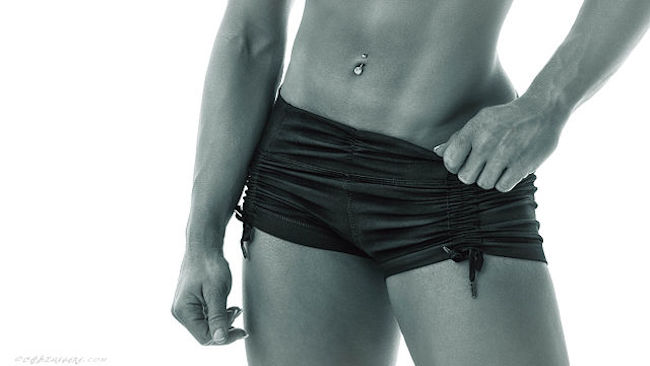Water weight is like a stealth bomber to so many people's fitness aspirations and one of the main causes of the dreaded mini yo-yo effect. With the mini yo-yo, you can gain and loose up to 10-pounds in as little as one night. Simply put, there is no way that we are able to gain pounds of fat or muscle that quickly, even if we are eating cruise ship style. Those crazy scale fluctuations that simply make no sense and leave me recalibrating my scale on an [almost] weekly basis can be attributed to water weight. This small annoyance has got me asking the questions what is water weight and where does it come from?
In simple terms, water weight is an abnormally large amount of fluid in our circulatory system. This fluid is mainly from the pressure in our capillaries getting too high. When this pressure gets to high, fluid is excreted into the surrounding tissue as a way of equalizing. Sometimes, this fluid is re-absorbed back into the capillaries when pressure regulates, and sometimes, it does not. When the fluid is not immediately re-absorbed, it becomes what we endearingly refer to as bloat or water weight.
Water weight can usually be found in our abdomen, legs, knees, and ankles. Although rare, water retention in the ankles and feet can also be a sign of congestive heart failure. This is normally only seen in people ages 50 and over. Other symptoms of congestive heart failure include fluid in the lungs and chronic coughing.
There are a few less severe reasons for water retention other than congestive heart failure. Usually, bloating is brought on by a diet too high in sodium or alcohol, or too little water. By decreasing the alcohol consumption and limiting the amount of processed foods eaten on a daily basis, we can usually cut back the bloat. Of course, drinking at least 8 cups of water per day is vital for water retention prevention.
The average person will see a decrease in water retention after 1-4 days of a diet with lower sodium and alcohol and a higher intake of water. Sometimes, the weight loss process can take as long as three weeks, depending on one's diet. If your first go at loosing that water weight leaves you heavier rather than lighter, do not fret. It is common for our bodies to retain both the water we are drinking and the fluid in our body for a small amount of time. This normally goes away after the first 1-2 days.
Try eating grapefruits, blueberries, and non-artificial sweeteners to increase the water weight loss. Exercising at least 30-minutes per day will also help reduce water weight along with staying away from carbonated beverages, starchy foods, and dairy. For those who are extra serious about loosing those extra lb's, take Jillian Michaels water wight-loss challenge and drink 60-ounces of distilled water mixed with one tablespoon of sugar-free cranberry juice, 1 dandelion root tea bag, and two tablespoons lemon juice daily for a week.
Check out this article for an in-depth list of foods to reduce bloating, and this article to find out some of the foods that cause it.
Originally published on September 9, 2013 :)
